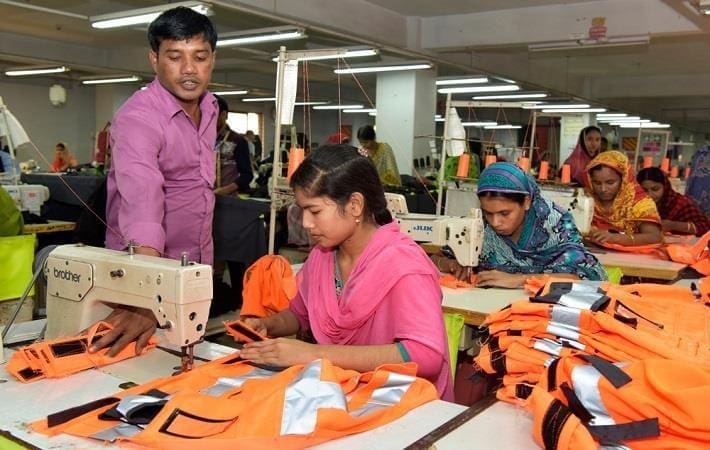Bangladesh has announced an increase in the minimum monthly pay for its four million garment workers by 56.25 per cent, a decision that has been met with rejection by unions who are advocating for a near-tripling of the figure. The garment industry in Bangladesh is crucial to the country’s economy, accounting for around 85 per cent of its $55 billion in annual exports and providing clothing to renowned global fashion brands such as Zara, Levi’s, and H&M.
However, conditions remain dire for many of the sector’s workers, predominantly women, who currently earn a monthly starting wage of 8,300 taka ($75). In response, workers have been going on strike, demanding a significant wage increase, while employers have only offered a 25 per cent raise. Unions argue that their members have been severely affected by persistent inflation and a depreciating currency, resulting in a cost of living crisis.
The state-appointed board responsible for setting the minimum wage has now fixed it at 12,500 takas ($113), but this decision has been promptly rejected by unions who have been calling for a minimum of 23,000 takas. Following the announcement, hundreds of angry workers staged a protest near the labour ministry, expressing their discontent.
Amid rising tensions, violence erupted in the city of Gazipur, as thousands of workers set a bus on fire, prompting police to use tear gas to disperse the crowds. The situation further escalated last week, with numerous factories being temporarily closed and some even attacked.
International brands, many of whom are major buyers of garments from Bangladesh, have not yet commented on the protests and wage negotiations. However, several brands, including Gap, Levi Strauss, Lululemon, and Patagonia, previously wrote a letter to Prime Minister Sheikh Hasina, urging for a resolution that ensures workers receive a wage sufficient to cover their basic needs.
These protests coincide with separate violent demonstrations by opposition parties, demanding the resignation of Prime Minister Hasina ahead of the upcoming elections. The situation remains tense as the authorities try to address the concerns of the workers while maintaining stability in the country.

